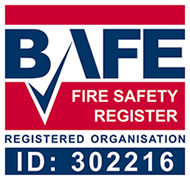If you run your own business you are required by law to ensure that high standards are met when it comes to electrical safety. In order to minimise the risk of injury or accidents, portable electrical equipment should be checked and maintained, however the majority of office equipment is very low-risk. With this in mind, you may be wondering exactly what your obligations are.
Although computer equipment poses little risk, it must still be maintained to ensure that it is safe to use. Portable appliance testing (PAT testing as it is often called) helps to ensure this and it’s important to remember that faulty or damaged equipment can cause burns, electric shocks or even start a fire.
The term ‘portable equipment’ covers a whole host of things and applies to any electrical equipment which can be moved whilst it is connected or disconnected from the mains power supply. The majority of IT equipment falls into this category, as do toasters, vacuum cleaners, desk lamps, kettles etc.
It is your responsibility to ensure that all the computer equipment in your office is safe and this rule applies to employers, self-employed people and employees. However, to complicate matters, the law doesn’t specify how frequently testing should take place.
It is not true that PAT testing should be carried out on annual basis as the frequency of testing depends on the type of equipment and where and how it is used plus how at risk it is of becoming damaged.
The electrical equipment used in the majority of low-risk offices such as offices, call centres or shops, for example, poses very little threat and these days the majority of computers, printers, scanners etc are supplied with pre-wired plugs and cables; this means that regular visual checks should be sufficient.
However, because some electrical equipment such as mobile phones, laptops or tablets are frequently plugged in and then unplugged again, this can mean that the power cable can become damaged. Again visual checks should be carried out on a regular basis to ensure that this sort of equipment is safe to use.
Here at Dalec we are specialists in all aspects of electrical safety for business customers and if you would like further advice on electrical safety for your business, please don’t hesitate to get in touch.








